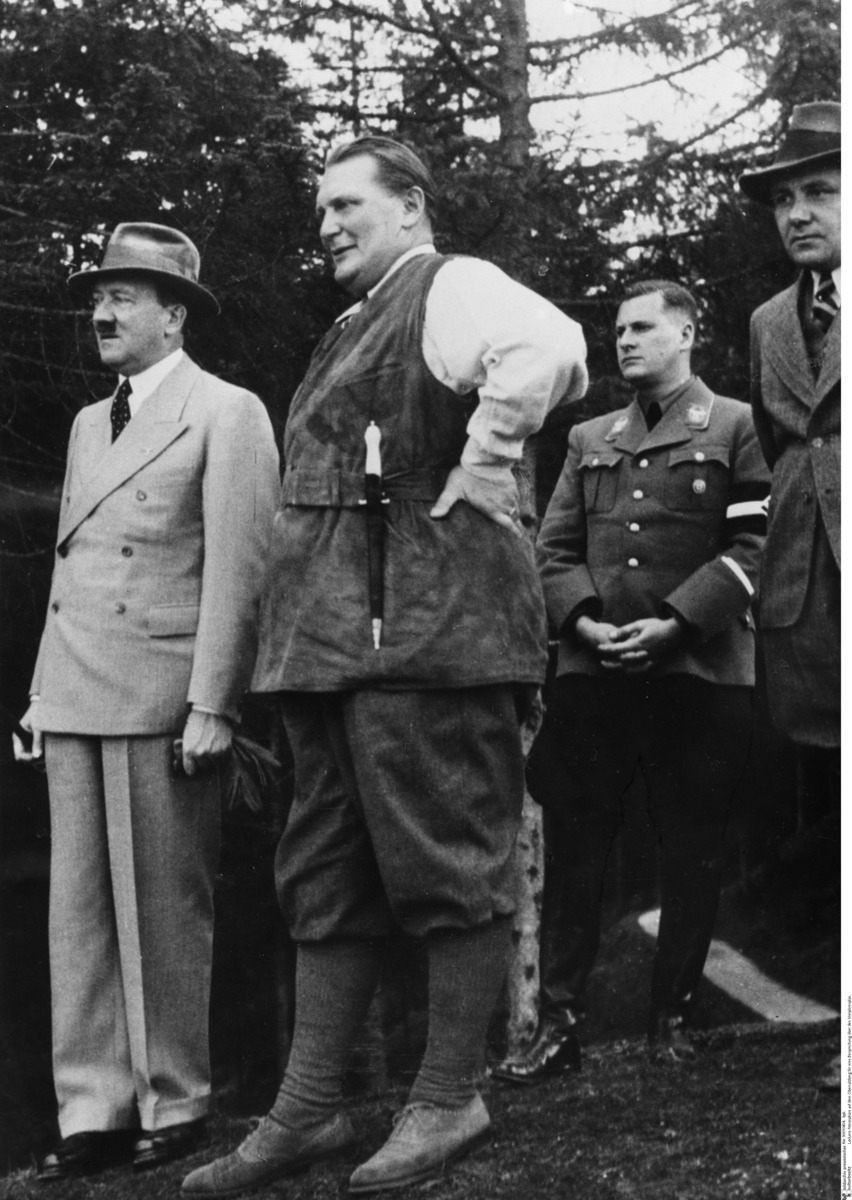Abstract
From left to right, we see Hitler and Hermann Göring (foreground),
and Baldur von Schirach, head of the Hitler Youth, and Martin Bormann
(background). The four had gathered on the Obersalzberg to discuss the
Four-Year Plan. The National Socialist state-directed economic policy
formulated in the Four-Year Plan aimed to arm Germany for war within
four years. This goal was supposed to be achieved through autarky and
increased production in areas crucial to war efforts. The plan was
announced at the 1936 Reich Party Rally and was implemented in October
of the same year. Hermann Göring was put in charge of the Four-Year
Plan, a responsibility that entailed state intervention into private
business, which, in turn, had to adapt to the new standards. In 1937, to
accelerate the production of war materials, he founded the “Reich Works
Hermann Göring,” a state company that initially competed with private
heavy industry but later united with the latter’s chief representatives.
Martin Bormann had already distinguished himself in the economic sphere
in 1933, when he initiated the “Adolf Hitler Fund for German Business,”
which provided the NSDAP with a lucrative source of financing.
In 1933, Hitler had bought a house on the Obersalzberg near
Berchtesgaden. He subsequently turned the house into his residence, the
“Berghof.” The original owners of neighboring properties were then
driven out and the mountain declared the “Führer’s Reserved Area.” It
became a second center of power alongside Berlin. Hermann Göring, Martin
Bormann, and Albert Speer also owned houses on the Obersalzberg. Göring,
who was a passionate hunter and who also held the offices of “Reich
Forestry superintendent” and “Reich Master of the Hunt,” is seen here in
hunting clothes; Hitler and Bormann are both dressed in civilian
clothing, while von Schirach is in uniform.
